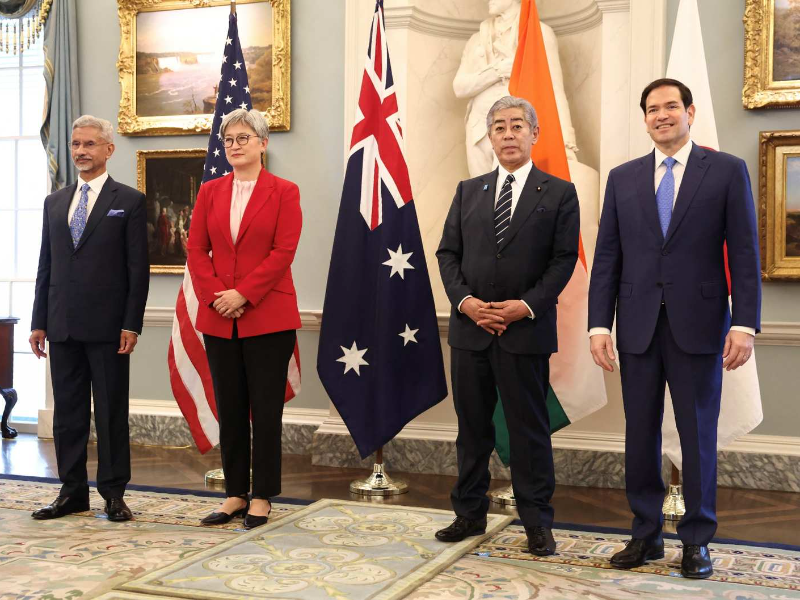India’s role key as Quad weighs future in Indo-Pacific order: Asia Society
New Delhi’s geographic and political weight gives the Quad legitimacy in South Asia, but the report cautions this could reinforce “perceptions of exclusivity” among smaller neighbors.
 Indian External Affairs Minister Subrahmanyam Jaishankar, Australia’s Foreign Minister Penny Wong, Japanese Foreign Minister Takeshi Iwaya and U.S. Secretary of State Marco Rubio stand together at the start of their meeting of the Indo-Pacific Quad at the State Department in Washington, D.C., U.S., July 1, 2025. / REUTERS/Kevin Lamarque/
Indian External Affairs Minister Subrahmanyam Jaishankar, Australia’s Foreign Minister Penny Wong, Japanese Foreign Minister Takeshi Iwaya and U.S. Secretary of State Marco Rubio stand together at the start of their meeting of the Indo-Pacific Quad at the State Department in Washington, D.C., U.S., July 1, 2025. / REUTERS/Kevin Lamarque/
The Quad—an informal security partnership linking the United States, Japan, India, and Australia—has long been criticised for lacking structure. But a new analysis argues its informality may be its biggest strength, giving the grouping flexibility to adapt quickly and coordinate on shared challenges in the Indo-Pacific.
The report, Cementing the Quad in the Indo-Pacific, by Asia Society Policy Institute, lays out how countries in South Asia, Southeast Asia, and the Pacific Islands view the four-nation framework. While many see potential, the study warns the Quad’s long-term relevance hinges on its ability to deliver tangible, visible benefits rather than rhetoric about countering China.
ALSO READ: Quad Space Act seeks U.S.–India–Japan–Australia cooperation on space security, industry



 Lalit K Jha
Lalit K Jha














.jpg)

Comments
Start the conversation
Become a member of New India Abroad to start commenting.
Sign Up Now
Already have an account? Login